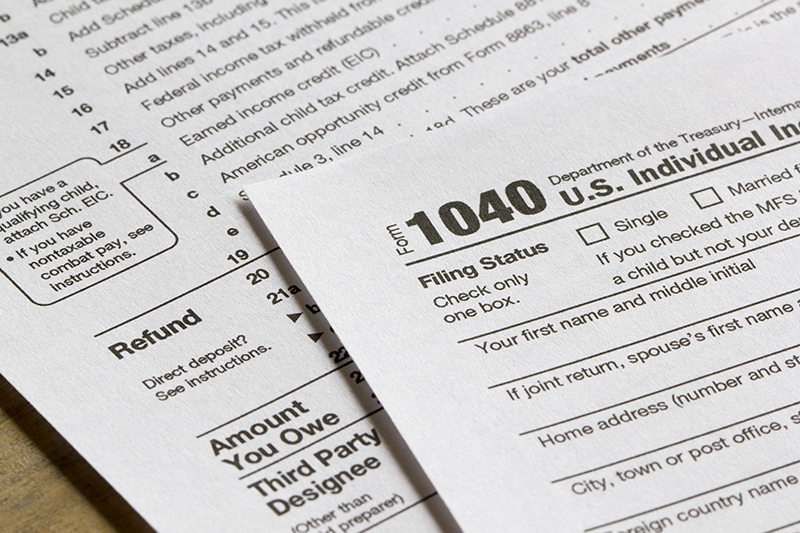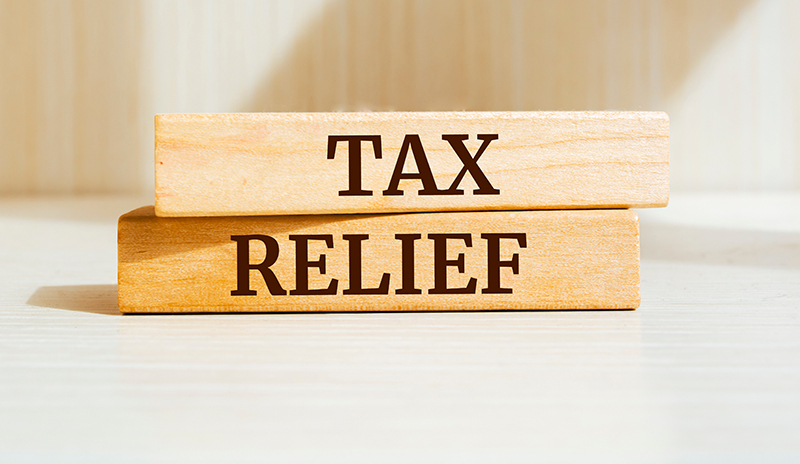Why did the IRS file my taxes for me?
January, 05 2021 by Jean Lee Scherkey, EA
It is the IRS's quintessential gift that keeps on giving, not to the recipient, but right back to the U.S. Treasury. When a taxpayer does not file their income tax return or ignores an audit notice, the IRS will step in and make tax assessments on behalf of the taxpayer based on the information they received from third parties. What information, you ask? Remember the W-2 your employer issued back in January or the interest statement you received from your brokerage account? A copy of these forms was also sent to the IRS. Whenever income is reported to you on an IRS form like a W-2 or 1099, the IRS is sent a copy. If enough income is reported for a taxpayer to be required to file an income tax return, but the IRS does not receive one, the IRS will prepare a substitute for return (or SFR) on behalf of the taxpayer.
If you think that this is the greatest news you have heard all year and have decided that your New Year's resolution is never to file your tax return again, you may want to hold off declaring your intentions at the New Year's Eve Zoom cocktail party you are planning to attend. When a substitute for return is prepared, the IRS will not consider an advantageous filing status the taxpayer may qualify for and will use the standard deduction even if the taxpayer has enough deductions to itemize. If the taxpayer has dependent children under age 17 and usually qualifies for the Child Tax Credit, the credit will not be included on the substitute for return. The IRS only uses the Single or Married Filing Separate filing statuses when preparing a substitute for return, even if the taxpayer may qualify for the more advantageous Head of Household filing status or Married Filing Joint.
Look for IRS Letter 2566
Once the IRS completes the substitute for return and assesses the tax, the IRS will send the taxpayer Letter 2566, Proposed Individual Income Tax Assessment, notifying the taxpayer of the return completed on their behalf. The taxpayer will have thirty days from the date of the letter to either:
- Submit a Form 1040 that they prepared
- Sign and date the "Consent to Assessment and Collections" form that was included with Letter 2566, agreeing to the amount of tax assessed
- Provide a letter explaining why they believe an income tax return is not required
- File an appeal
If the taxpayer does not respond within thirty days, the IRS will send the taxpayer letter CP3219, Notice of Deficiency. If the taxpayer continues ignoring the IRS's letters, the IRS will send the taxpayer letter CP22, which is a bill. The IRS may begin collection actions if the taxpayer continues to ignore the letters sent. Collection actions may include levying the taxpayer's bank account, wage garnishment, or placing a lien on the taxpayer's home.
You will Most Likely Pay More Tax if the IRS Files for You
Often, the substitute for return prepared by the IRS has a much higher tax liability than what the taxpayer's liability would have been if they had filed their return. When a taxpayer prepares their own return, they can claim deductions and credits that were omitted from the return prepared by Uncle Sam. Once the IRS receives the return the taxpayer prepared, they will examine the return thoroughly to determine its accuracy through a process called an audit reconsideration. It is important for the taxpayer to ensure there is adequate documentation to prove any deductions or credits claimed on the return. Once the return the taxpayer prepared is completely reviewed and accepted by the IRS, the IRS will make the appropriate tax adjustments to the taxpayer's account. It is not uncommon for a taxpayer to discover that they may have received a refund if only they had filed their return on time. Unfortunately, by the time a substitute for return is filed and the taxpayer subsequently files their return in response, the statute of limitations for claiming the refund has already expired.
In addition to potentially losing a claim for refund or owing more tax than what was due, taxpayers may lose other benefits when they do not file their returns, which can profoundly impact their finances down the road. For example, a self-employed taxpayer who does not file their income tax returns may think they are saving themselves from paying self-employment taxes. However, when the taxpayer becomes eligible to start collecting Social Security, they will be in for a rude awakening because their benefits will either be significantly reduced or non-existent. By not paying into Social Security during the years a taxpayer had income from their self-employment business, they robbed themselves of future retirement benefits down the road. Additionally, loan companies usually ask for proof of income and copies of filed income tax returns when a taxpayer attempts to make a big purchase such as a house or car and applies for financing. It will be awkward at best trying to explain to a loan agent why you cannot provide your income tax returns.
Circumstances arise where the last thing on a person's mind is filing their income tax returns. If life happens and you find yourself having one or several years of unfiled returns, and the IRS has prepared substitute for returns, you are not alone. The tax professionals at TaxAudit's Tax Debt Relief Assistance can help. Our staff has years of experience representing taxpayers with substitute for return issues. We offer a free initial consultation, so you have nothing to lose and peace of mind to gain.





